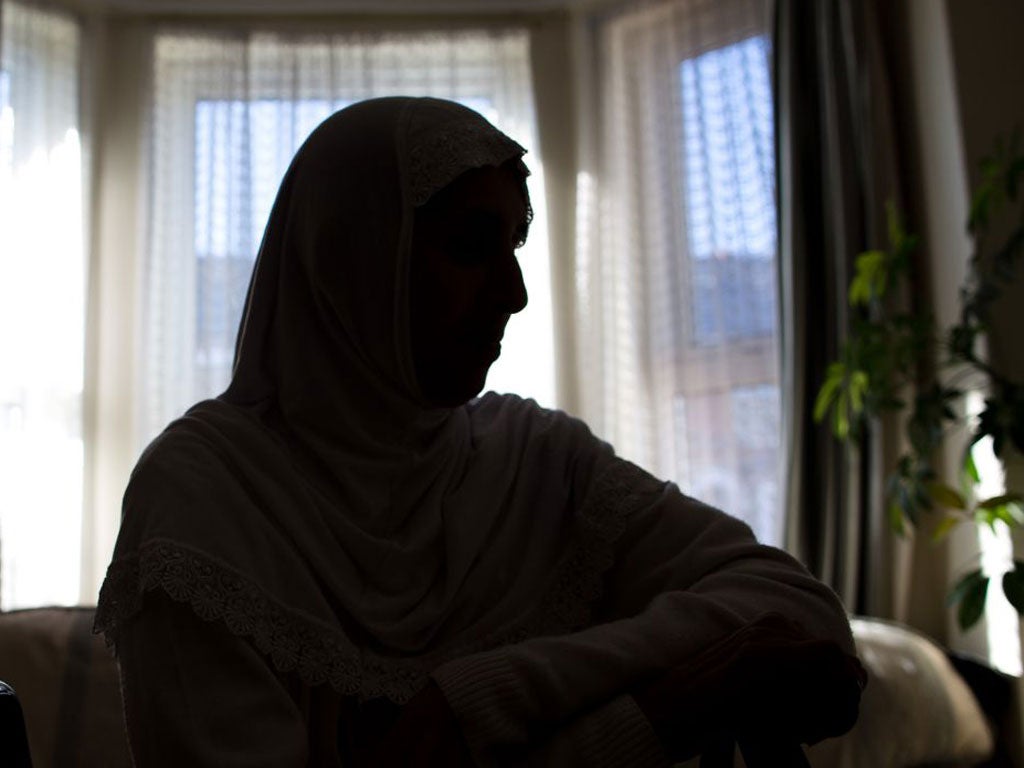'The doctors had given up. They said her heart had stopped and she had brain damage. But she's fine'
Jeremy Laurance on the miracle of the woman who came back from the dead – and why it matters for us all

I have shaken her hand, held her gaze and spent more than an hour chatting with Tasleem Rafiq and her children and I can report that she is no ghost. The 52-year-old mother of four is very much alive.
Quite how she comes to be alive is, however, a medical mystery. A month ago, she had a heart attack and stopped breathing. What happened next has astonished doctors, shocked her family and raised questions about medical practice. For Mrs Rafiq has returned from the dead.
Sitting in her terraced house in Reading, which she shares with three of her children, she shows no sign of the ordeal she has endured. "God will take you when he chooses. Everyone was praying and God said: 'I am going to leave this lady.' I am a very lucky mother," she said. She does not want her picture in a national newspaper but she looks younger than her 52 years.
She has had multiple sclerosis for 20 years, cannot walk and occasionally gets chest infections which develop into pneumonia, requiring hospital admission. But on 14 September, she collapsed. An ambulance was called and resuscitation commenced. It continued, on the floor of the front room, in the ambulance on the way to the Royal Berkshire Hospital and in the accident-and-emergency (A&E) department, but without success.
Her son Fezaen, 28, said: "We were waiting [in the A&E department] when the doctor came out and said: 'I have to tell you that we have been trying to get your mother's heart started for 45 minutes and we haven't had any luck. Unfortunately she has died.'"
The family, in shock, asked to see the body, to bid goodbye. They were shown into a private room and warned that because their mother had been injected with adrenalin her body would make involuntary movements and they should not think that these were signs of life. It was 11.30am.
Fezaen said: "She was lying with her eyes rolled back gasping. We were sitting with her praying. I was on the right and my brother was on the left when he said, 'She's looking at you.' We called the nurse and asked if that was normal. She said yes, it was quite normal."
Over the next two hours, this scenario was played out several times as the family struggled to convince nurses that their mother might still be alive. A doctor was summoned, who examined the "corpse" and declared there was, indeed, a faint pulse.
But doctors assessed her twice, found her unresponsive and concluded that, though she was alive, she would have suffered irreversible brain damage and would be likely to die soon. They advised if she had a second cardiac arrest, she should not be resuscitated, a prospect which alarmed her family.
At around 10pm, her daughter Shabana was sitting holding her hand and noticed her pulling it away. "Mum, if I have done something to upset you, tell me," she said. Mrs Rafiq turned to her and said: "What have you done to upset me?" It was the signal the family had been praying for.
By next morning, she was chatting and joking with her family as her memory returned. On 2 October, she was discharged home, alert and alive.
Doctors caring for Mrs Rafiq described her recovery as "a miracle", according to the family. David Mossop, lead consultant in emergency-care medicine at the Royal Berkshire Hospital, was more cautious. He said the resuscitation protocol had been followed correctly and after 45 minutes, and with blood tests showing "profound acidosis" – lack of oxygen – "you would expect a severe amount of brain damage".
But there was none. "That is very unusual," he said.
Subscribe to Independent Premium to bookmark this article
Want to bookmark your favourite articles and stories to read or reference later? Start your Independent Premium subscription today.

Join our commenting forum
Join thought-provoking conversations, follow other Independent readers and see their replies